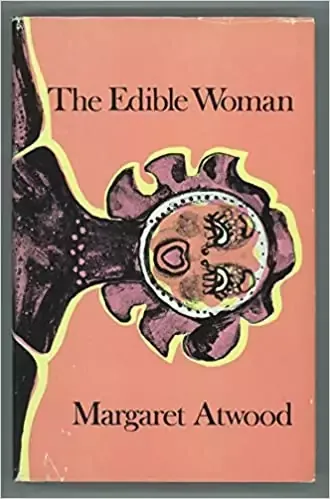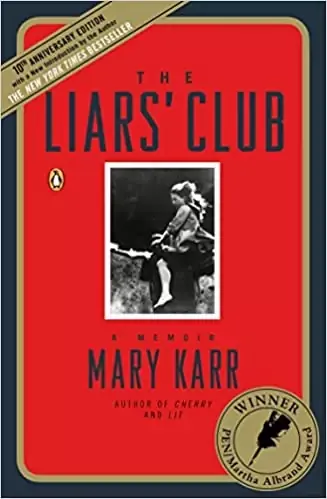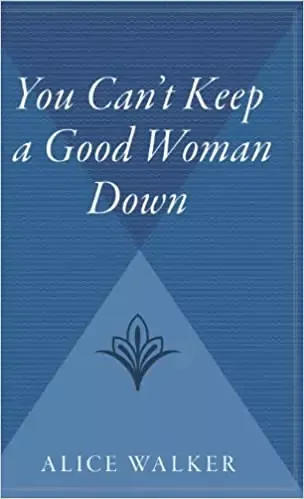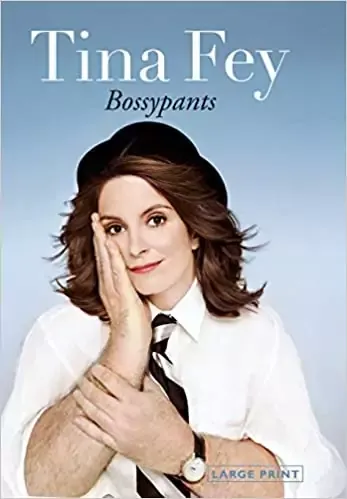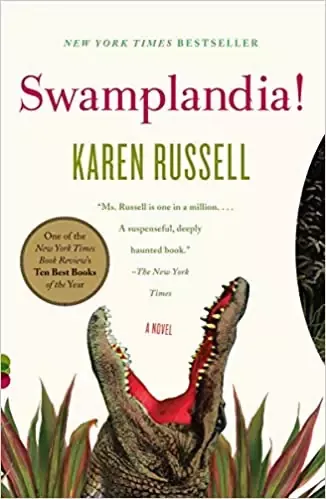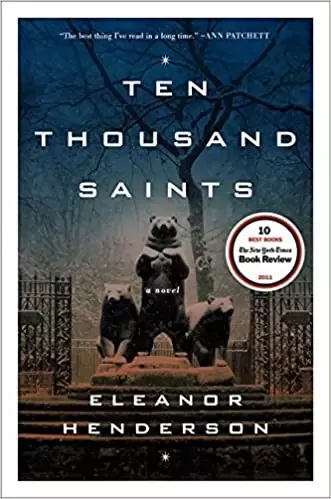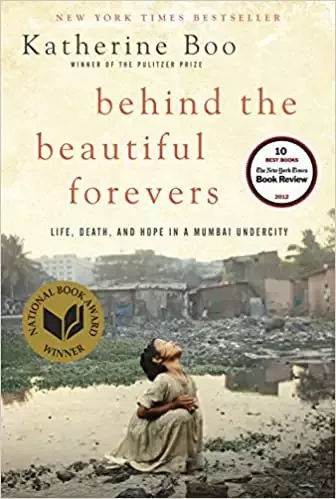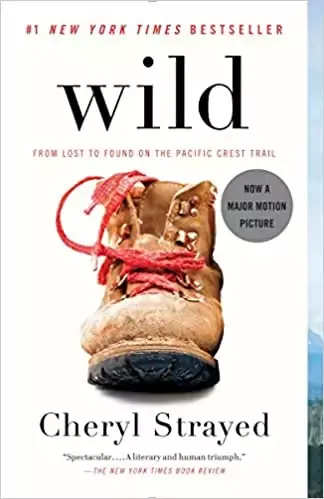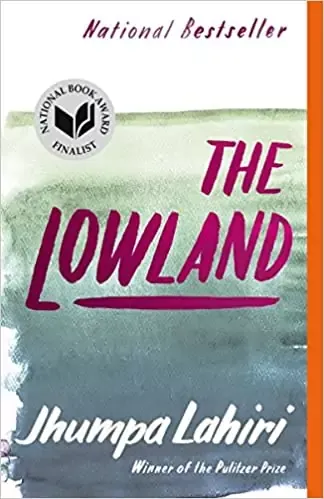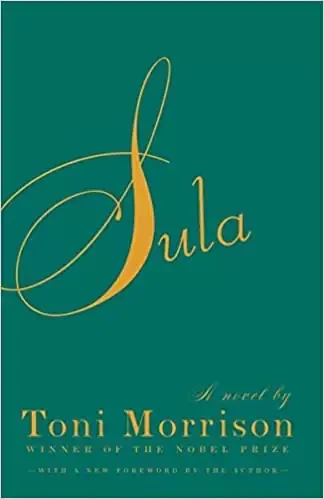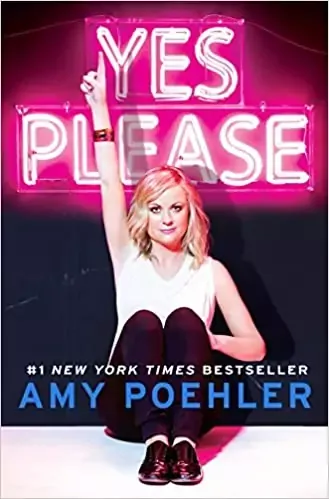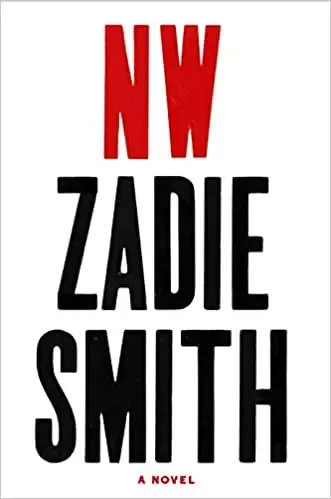Welcome to an insightful journey through the '31 Books Every Woman Should Read in Her 20s,' written by
Muhiuddin Alam on the book recommendations and reviews site,
ReadingAndThinking.com.
I will recommend books every woman should read in her 20s, which is based on my in-depth study and extensive research in this field. Some notable recommendations include Bad Behavior, The Edible Woman, To the Lighthouse, White Teeth, The Golden Notebook, Nightwood, Delta of Venus, and Self-Help.
So, when I suggest these books, it's because I've read a lot and want to share the best ones with you. I'm all about making your reading experience awesome. Trust in a guide deeply immersed in the literary books and stories. I love books just like you do!
These aren't the only books on this topic. Below, you'll find 31 books with detailed descriptions of each of these outstanding resources, helping you make well-informed decisions to choose books for women in their 20s journey.

31 Books Every Woman Should Read in Her 20s
There are many excellent books that can be useful and inspiring for people in their 20s.
These books for 20-somethings often address common challenges and experiences that woman in their 20s may face, such as finding their place in the world, navigating relationships and career decisions, and personal growth and development.
Some books may offer practical advice and guidance, while others may be more philosophical or fictional in nature.
Regardless of your specific focus, the best books for twenty-somethings are often those that speak to the unique experiences and needs of this age group and offer hope, inspiration, and encouragement as they face the challenges and opportunities of this important decade.
Some specific examples of books that may be particularly helpful for 20-somethings include:
1. Bad Behavior
There are 9 stories in this novel. It is rare to see foreign novels with such a plot and graphic sense. I really think the author's skill is good.
In such a short text chapter, it is very powerful to be able to write such a wonderful story.
Most of these stories are dark, like the kind of shameless cheat sheet, written in a hurry, crumpled into a ball, and then let me pick it up in an inexplicable afternoon, unfold it in the sun, and just read it like this, after reading it.
My eyes are tingling and want to shed tears. So many fragile souls rushed out together, unable to withstand it, and only felt that the world was spinning, with endless sorrow.
In this compassion, I was a little familiar, and some characters actually had a cordial shadow on them. This was probably the case, and I felt sad.
A trade paperback reissue of National Book Award finalist Mary Gaitskill's debut collection, Bad Behavior--powerful stories about dislocation, longing, and desire that depict a disenchanted and rebellious urban fringe generation that is searching for human connection.
Bad Behavior made critical waves when it was first published, heralding Gaitskill's arrival on the literary scene and her establishment as one of the sharpest, erotically charged, and audaciously funny writing talents of contemporary literature.
Michiko Kakutani of The New York Times called it "Pinteresque," saying, "Ms. Gaitskill writes with such authority, such radar-perfect detail, that she is able to make even the most extreme situations seem real... her reportorial candor, uncompromised by sentimentality or voyeuristic charm...underscores the strength of her debut."
2. The Edible Woman
Marian is determined to be ordinary. She lays her head gently on the shoulder of her serious fiancé and quietly awaits marriage.
But she didn't count on an inner rebellion that would rock her stable routine and her digestion.
Marriage a la mode, Marian discovers, is something she literally can't stomach... The Edible Woman is a funny, engaging novel about emotional cannibalism, men and women, and the desire to be consumed.
It was Atwood's first novel, published in 1969, and now it seems full of the sense of the times. Not your favorite Atwood, but she just has the charm to entice you to read on.
I don’t like the ending very much, and she is so cruel to the characters in the pen. I remember her parents seem to be faculty too.
The ending is simply an Atwood-style Jane Austen-style happy ending. But Marian's final re-understanding of Ainsley is very interesting: She was almost morally earnest as the lady down below.
One is a young woman who has received a college education and adores femininity, and the other is a conservative old lady who can't even accept women's drinking.
But Marian finds that there is no difference between the two, which is too ironic. This novel was conceived by Atwood at the age of 23 and written at the age of 24. She is really a genius.
3. To the Lighthouse
The so-called stream of consciousness is just a way to enter the story, providing a framework and implementing it into the content, which is still very real. But here at Woolf, the stream of consciousness is the text itself, the whole content! Kind of scary.
If you are not familiar with Woolf's style, reading this book is like,-not hitting the wall but hitting the cotton, that kind of gentle whispering, lingering tone.
Especially when there are so many people who have just appeared on the stage, I don’t know who the children of Ramsays are and who their guests are.
When Mrs. Ramsay is alone, (the light from the beacon shines through her mind), she really calms down and gradually gets better.
By the time of the dinner, I was already very familiar with this style. Looking at her pen controlled by the author, it seemed that there was a bird as a sign, flying from the head of the guest to the head of the other person. Beyond demeanor.
I especially like the middle part, time passes, which is pure and generous. It is in contrast with the delicate, sticky, and sticky pages of the previous more than 100 pages. It can be read as good prose.
Woolf's English is really beautiful and surprisingly easy to read. It's like white boating.
Maybe the surrounding scenery may not be so clear, but it feels wonderful, which is why I can keep reading.
I remembered that in the movie "The Moment", Julian Moore ran to the hotel with Ben Woolf's book, planning to commit suicide after reading it.
——I think this is not impossible, in a situation similar to being hypnotized by words.
But when I think of it, even though I haven't read Woolf, her disciples and grandchildren have read a lot, such as Michael Cunningham.
Now when I think about it, hey, his tone shouldn't be too similar to Ms. Wu! Janet Winterson didn't look like he had studied.
Needless to say the hours, even Alice in the early home at the end of the world seem to be a deformation of Mrs. Ramsay or Mrs. Dalloway.
The thoughtful woman, melancholy and hesitant, feels like an ice-carved knife.
4. White Teeth: A Novel
Sometimes when I look at the photo album, I find that I have completely forgotten the image of myself in the photo album many years ago, and I conclude that it has changed too much.
When I first met "White Teeth", I didn't think I would be interested in this kind of book before.
I bought it purely by chance. When I went home and read it carefully, I realized the smell.
The whole book reveals a kind of British culture. He is not writing about British aristocrats, nor is it purely about poor life.
But by coincidence, two of the three families are filled with different skin colors, religions, and beliefs, while the other family resolutely implements the unique "Schalfinism" of its own family in terms of lifestyle and behavior.
It is said that the development of each character is stable, but in the end, you just can't see their original shadows.
Looking back at their appearance when they appeared on the scene, is like looking at the previous photo album to find everyone's missing personality.
As stated in the book, before telling an ancient story, one by one, one by one, put back into the belly like a matryoshka. Conversely think, that as long as one link goes wrong, everything is different again.
The intricacies of religion, ethics, science, and emotions are peeled off in layers and placed in front of your eyes in the book and kneaded together to become this novel.
Various religious beliefs lived together in that era, fighting for their own status. Each religion also wanted to occupy other people's minds and influence other people's cultures.
Generations of people quarreled desperately over the generation gap, and in order to prove that they were right, various emotions were intertwined to form one soul after another. There are several very different ways of life in a family.
The world in the book is really dazzling. You can experience the different cultures in different periods from the pages of the book.
5. The Golden Notebook
Doris Lessing's Nobel Prize-winning work in literature. It is said that when Doris Lessing won the Nobel Prize in 2007, it surprised the world.
It is a book that wins by structure. In terms of the multiple propositions the author wants to express, this structure is necessary and ingenious. (Coincidentally, the last Julio Cortazar's "Hopscotch" has a unique structure.)
This structural innovation provides a new way of expression for the writing of novels, and even the structure itself can be changed.
Reading a seven-hundred-page novel is now more difficult for me than reading the same thick philosophy book.
Perhaps it is because the pleasure of the novel is more secretive, and a large number of brilliant chapters are hidden in the plain narrative.
But Lessing’s novel really taught me something new, allowing me to observe women and the relationship between men and women from the other side.
And when I put myself on the opposite side of the author to start a dialogue, everything seemed to come alive, so this book has become a book that can be re-read.
The golden notebooks are like a mirror of the world. They tell mediocre writers: You haven't worked hard enough.
But the content is not read through. The black notes (colonial experience) and the red notes (politics) are quite straightforward.
On the contrary, the yellow notes (love) and blue notes (spirit) cannot be understood and cannot produce sympathy.
Although I didn't read it through, I can still clearly feel the division of the protagonist, and I can feel the interaction of the four colored notes on the theme of "splitting".
Only in a specific time and environment, combined with a specific culture, can there be such a division; and I am equivalent to being in another world.
6. Nightwood
Nightwood was rated as one of the hardest novels to read in the 20th century. Stream of consciousness, large monologues, sequences of meanings divided by phrases or fragments, and Barnes’s personal language style all make reading difficult.
When the novel was published, Eliot, who was then editor of Faber&Faber, highly praised the novel and wrote the introduction part. There are 8 chapters in the novel.
The first 4 chapters mainly introduce 5 main characters: Robin, Felix, Nora, Jenny, and Doctor O'Connor; The middle three chapters are Doctor's large monologues; In the short last chapter, Robin somehow returns To the woods outside Nora's residence, barking with Nora's dog and lying on the woods.
Robin can be said to be a creature between humanity and animality. It is difficult for us to regard her as a human being.
And what Robin wants to seek from the other three characters is "the survival of real human beings" and the identity of people (?).
In Joseph Frank's spatial form article, he pointed out that the last chapter makes the reader understand that the previous feeling points to the only possible ending.
7. Delta of Venus
In Delta of Venus, Anais Nin penned a lush, magical world where the characters of her imagination possess the most universal of desires and exceptional of talents.
Among these provocative stories, a Hungarian adventurer seduces wealthy women and then vanishes with their money; a veiled woman selects strangers from a chic restaurant for private trysts, and a Parisian hatmaker named Mathilde leaves her husband for the opium dens of Peru.
Delta of Venus is an extraordinarily rich and exotic collection from the master of erotic writing.
The book describes many independent and strong female characters. Although they are prostitutes, they are brave and powerful and pursue the sex and love they want.
The men in the book are all portrayed as sick, with sick minds and bodies. Anais has a big brain. After reading this book, many readers may also want to try the fragments described in the book.
Bataille said that making love is different from bestiality because we arrogantly overstep ourselves from a human standpoint and return to bestiality.
Eros is eros, precisely because it rejects the simple stimulation of the senses; precisely because it infuses our poetry, fantasy and joy, anger, sorrow, and joy.
8. Self-Help
When I started reading this book, I was also reading Girls. I felt that Lorrie's short story reminded me of Hannah. I tried hard to experience it for the sake of writing.
The expression is cunning and affectionate. Over the years, I have been watered in a lot of hypocritical ways, so I can appreciate it, but I vaguely hope that someone will convey it in a more natural way.
In these tales of loss and pleasure, lovers and family, a woman learns to conduct an affair, a child of divorce dances with her mother, and a woman with a terminal illness contemplates her exit.
Filled with the sharp humor, emotional acuity, and joyful language Moore has become famous for, these nine glittering tales marked the introduction of an extravagantly gifted writer.
9. The Portable Dorothy Parker
I watched it on December 23, 2013. It took two and a half years to finish reading, which is a broken personal reading record.
I was listening to The Best American Short Stories Of The Century. One of them was Here We Are written by Dorothy Parker in 1931, and John Updike’s electronic version of the catalog, which was relatively tiring after reading through it, could not be used,
so I found this Dorothy Parker Complete Stories, which is only 20. inside minutes of advancement of women thinking Dorothy Parker pen sharp small themes can not imagine the next moment will take you to where thought leadership at home. . .
Fortunately, it's okay, but it's a bit similar. Maybe every man who can persist after getting married has endured a fine test like a small pinpoint.
It is no longer too unbearable, but it is generally longer and lasts for a long time.
The love for children in the first half of the 20th century mainly occurred in the middle class of New York.
One story after another published in Vogue and Vanity Fair satirizes the men and women in love and after losing love.
Moreover, there was a kind of living in New York in 1918 where a telephone operator needed an operator. The half is about the author’s interviews and letters.
10. The Liars' Club: A Memoir
Mary Karr described her childhood as full of pain, fear, and uncertainty in a very witty tone.
The book talks about her alcoholic and mentally ill mother; her silent father who endures her; her messy and disorderly family life and the experience of being raped. Her childhood took place in a backward industrial area in Texas.
With vivid and loving brushstrokes, she depicted the American South in the 1950s and 1960s: hunting and eating game, playing in the wild, religiously fanatical neighbors, father's always greasy clothes from factories, and mothers who are unaccounted for...
This book may be the autobiography of the most painful childhood in the world. There are mental illnesses, ostracism, family murder, the unspeakable fear of cubs, and the ability to show that children can feel happy even in pain.
Mary Karr is known as the predecessor of David Foster Wallace. And I think David Foster Wallace borrowed and even copied many elements of her work in his writing.
Looking at the biography of David Foster Wallace, I can also feel that the relationship between the two people may not only admire and admire but also have deep jealousy.
Mary Karr's words, in my opinion, are more natural than David's blunt, awkward, and deep humor.
You may feel that David is struggling with this humor, but Mary Karr is easy to come by.
I think her ability is first because she is a female and has a natural sympathy --- she is not as flustered and unconfident as David about loving and conveying emotions; it is because her life is true.
Too ridiculous, the ridiculous pain and the love of life produced a humorous contrast. She can put this absurdity on paper at will.
11. You Can't Keep a Good Woman Down
Advancing Luna's story is really well written. In an era when a large number of black men were killed under the guise of "raping white women", Alice Walker wrote about the friendship between black girls and white girls in the first person because the white girls told the black girls She was raped by a black man,
but because of the background of the lynching, she couldn't make or didn't want to make a statement, because she knew that a white woman had too much power in accusations against blacks.
After that, the black girl suffered a great shock, and the relationship between the two gradually became awkward and weakened.
A natural evolution from the earlier, much-acclaimed collection In Love and Trouble, these fourteen provocative and often humorous stories show women oppressed but not defeated.
These are hopeful stories about love, lust, fame, and cultural thievery, the delight of new lovers, and the rediscovery of old friends affirmed even across self-imposed color lines.
12. Americanah
This book is roughly divided into four stages. The first stage is when Ifemelu was in high school, the second stage is when she first arrived in the United States, the third stage is when she slowly settles down in American society, and the last stage is When she chooses to return to Nigeria.
Objectively speaking, each stage has its own characteristics, but subjectively speaking, my personal favorite is the second stage, that is, she came to the United States alone, from the beginning of the yearning for infinite possibilities to the deep depression.
Struggling in reality, she compromised in a moment in the end. I think that day should stay with her for the rest of my life, the strange tennis coach and the disgusting self-disgust that made her feel sick.
But at that moment she did compromise, just like thousands of desperate people in real life.
One of mine especially likes the story at this stage because of its authenticity. Unlike her in the third stage, she is more like a rebel in adolescence. She uses a sharp attitude to find all race-related issues in life. contradiction.
She looks for contradictions in whites, contradictions in her black American boyfriends, and contradictions in immigrants who have failed to get rid of their Nigerian background.
These contradictions exist, either true or false, but from a certain perspective, I think it is also a kind of prejudice from her, a level of thinking that can never surpass race.
It was more like she was reminded of her own ethnicity all the time, rather than those white people, his boyfriends, or Nigerian immigrants in the hair salon.
In any case, the angle of this book is interesting and attractive, especially for people who have similar experiences to me.
Ifemelu in the book has a slightly embarrassing identity. A word I summarized, it can be called 1.5-generation immigrants.
Such a generation lives in the gap between mainstream society and a generation of immigrants.
They may have grown up in a foreign country, or they may have immigrated abroad with their parents around the age of ten, but most of them have very traditional family backgrounds and have experienced traditional family education.
This growth process prevents them from being able to fully integrate into the mainstream local population, and they cannot integrate with so-called overseas students and a generation of immigrants.
They enjoy this unique advantage-they can speak two or more languages and are fluent in both cultures.
At the same time, they also have to bear the burdens brought about by these advantages parents have higher than average expectations and requirements of them, as well as suppression from traditional culture.
In such an awkward position where they can advance and retreat but cannot truly belong to a group, the 1.5 generations of immigrants formed their own group.
However, in this awkward group, I am concerned about myself and the future position of this group in society. It also feels unpredictable.
So when faced with some of Ifemelu's thoughts in the book, I could also have a deep smile. This may be the main reason why this book touched me.
13. Everything I Never Told You
At the beginning of the story, she creates suspense: "Lydia is dead, but they don't know yet."
With Lydia's death, she shed her cocoon and uncovered the United States in the 1970s, a combination of China and the United States. The gradual imbalance in the family.
Lydia's father is Chinese. He wanted to integrate into mainstream American society all his life, hoping to become a popular person, an ordinary person who would not be conspicuous; Lydia's mother is American, and she was burdened by her when she was young.
Expecting to strive for the highest level, hoping to achieve success in the patriarchal society at that time, kept secretly telling myself that I would never become a housewife like my mother.
In this family with a distinctive background, Lydia has an older brother and a younger sister, but because of the three siblings, only she has inherited the blue eyes of her mother, and she has received the most expectations and love from her parents.
These expectations and love gradually became a burden on her shoulders, which eventually led to her death.
Simply narrating the story outline is difficult to tell what touches people's hearts. This story has a suspenseful imprint and then unfolds calmly like flowing water.
She arranges the encounters and feelings of the two generations in the family from the perspective of each character in a patchwork manner, The climax of the story is not ups and downs, but in the process of reading, it can make me gradually resonate with the mood of each character.
The feelings of these characters become my feelings, falling like ink stains, slowly fainting, and then inadvertently Piecing together into the entire painting. At the end of the story, their emotions have already merged with mine, and the melancholy and gentle feelings in my heart are hard to distinguish from each other.
The things that move people's hearts most often do not distinguish national boundaries or languages.
Some people may say that the core of "Silent Confession" is family, female, Chinese, or the hesitation and loss of young people growing up. However, under these themes, human nature is its true core.
How will the human nature of ordinary people change when they encounter discrimination, misunderstanding, expectations, and love in the environment of ordinary people, in a world without catastrophes and crises?
When facing an impermanent or unfortunate future, how should ordinary people deal with themselves, and how can they not be overwhelmed by dark emotions?
NG is very good at shaping characters, and she has deep sympathy and compassion for every character in her writing.
These little people have no masked good and evil, but only the weakness, anger, fear, and frustration that you and I have all experienced or at least felt.
She didn't let Lydia die deliberately, nor did she let other characters—every member of Lydia's family—work hard to live deliberately.
At the end of the story, they still carry the mystery of Lydia's death and will carry this heavy mystery all their lives, trying to reconcile with each other and continue to live with each other's support.
This kind of life that is not lucky, and the fate of struggling not to sink, may well belong to each of us.
14. The Goldfinch: A Novel
I finally finished reading the "Goldfinch" with more than 600 pages, nearly 700 pages.
The moment I closed the book, the first feeling was a full sense of accomplishment, and the second feeling was to recollect the content of the book.
I have become less and less convinced of the so-called recommendations and girdles, both of which are extremely cocky.
This is what Donna said in this book: a book that people can't put down. But I put it down countless times.
Sister Donna, is it necessary to spend so many pages to tell such a story? You must know that paper will destroy tropical rainforests. Just started.
I thought it was a suspense novel. After reading it for a long time, I found out what it said? It is difficult to bring in the opening chapter.
The protagonist talks about his mother, but it is not particularly exciting, and then talks about the people around him.
Finally, he and his mother went to the art exhibition and met a bunch of fathers and daughters who made the protagonist find it strange.
Just when you were slowly gnawing down, it suddenly exploded, and it exploded while you were still ready! Then the plot began to speed up, but it was still not very fast.
The old man inexplicably said a bunch of inexplicable things to the protagonist and then gave the ring to the protagonist. Is this Gandalf giving Frodo any magical thing?
Obviously not, the protagonist took this ring, neither unlocked any underground secret library nor joined any secret society to become a white dragon envoy.
The mission of this ring is for the protagonist to know the friends of the deceased, and guide the growth of the protagonist, and then there is no such thing.
The old man inexplicably asked the protagonist to take the goldfinch out of the museum, and I couldn't understand the purpose of this after reading the entire book.
The whole book is a growth novel, but Sister Donna has to lean on the suspense. It is true that because of the existence of the painting, a sense of suspense has been added.
She will not give up when reading, just wants to know the fate of this painting and the protagonist. What's the intersection.
15. Bad Feminist: Essays
I am self-proclaimed as a feminist liberationist who has been in the dusty work, and I have only thought about my body.
Under the premise that this society is not perfect, I am gradually discovering that as long as I have contact with people, I have to face some ideas that I assume do not exist.
For example, I have never shaved armpit hair before, because I think it is unnecessary and a manifestation of discrimination against women-have boys ever felt ashamed of armpit hair? But when I was in the ballet class, one of the three hands and the other people's armpits were clean. I suffered a lot of attention from my classmates for nothing.
Fortunately, the teachers I met were very gentle and sweet, and they guided and praised me meticulously.
Thinking that this behavior might also cause discomfort to my admiring teachers, I still shaved off my armpit hair before a dance class.
In fact, such behaviors and struggles also exist in the lives of many, many contemporary women.
I believe that as long as you are confident, you can do it, but the guys I like say that my skin texture is not good; I believe that professional skills are the focus, but I see customers What to do when I feel pressure to put on makeup to reflect the so-called "respect".
I don't have that much entanglement in my heart, but at this moment when I think of one day when I explain to others what this book is written, I feel that this book is more powerful.
After all, not everyone can easily get that kind of internal and external connection through some arguments, and they should not feel even a bit of pain and confusion because of the difference between what should be and what is true. If Anything-- It should be pride.
I personally have a very single, narrow, and personal love for books. This book obviously does not meet my personal preferences.
But in the final analysis, the book is not just a good argument for the essence book is a kind of spiritual companionship, sharing with any confused and tangled girl he has hesitated, and she has hesitated.
The author seemed to step out of the pen and paper to embrace the reader's confusion, and told them, "It's okay, it's fine, and it's gonna be alright."
16. Bossypants
It’s hard to imagine that Tina Former Chicago Second City actor, screenwriter, actor, and 30 Rock screenwriter and producer on the previous Saturday night, could not find a job for a long time after graduating from college,
and finally went to the Chicago YMCA (the YMCA of Evanston, a small suburb to the north, is similar to a multifunctional youth hostel, except that people who live there are not necessarily youth) as a receptionist.
While working as a receptionist, Tina went to Second City to participate in an improvisation course and eventually joined her troupe for a tour.
This is a not-so-inspiring inspirational story, because the protagonist of the story, Tina, did not feel sorry for herself because she was not so outstanding, even if she was "stolen" by her boyfriend by a beautiful blonde chick when she was a teenager,
even if she When I work at YMCA, I need to arrive at work at five o’clock every morning and face ton of unreasonable people and things.
Even when she graduated from college, she still remained a virgin and got a pap smear (pap smear) by mistake. You need to put a huge plastic tube into your vagina.
Believe me, even if you are not a virgin, you definitely don’t want to try it lightly); she didn’t project too much self-movement when she worked hard in the comedy world.
She said that her career as a screenwriter in SNL, Compared with the subsequent TV series production, is simply a "cakewalk".
However, her ability to seize opportunities in ordinary life is extraordinary and cannot be ignored.
She joked that she had the ability to "always turn the good news into anxiety" and left SNL to make her first TV series 30 Rocks.
She returned to SNL after leaving SNL. The experience of becoming an actor after two years as a screenwriter became a "highlight moment" in her life.
Very lucky to escape from the bleak and depressing life like a zombie during the commute time, listen to Tina Fey tell her story.
17. Swamplandia!
This is recovered from the humid Florida Everglades story, but also with a trace of moisture.
The Big Tree family living in the swamps of Florida raises alligators and performs shows for tourists.
Their lives are strange and exciting, and their families are full of strange legends.
However, when the mainstay of the family's mother passed away due to illness, tourists from the modern world became sparse.
The family island was in danger of bankruptcy, and his father went inland to do temporary work.
This story about the decline and rebirth of the Big Tree family begins.
A triumphant debut novel and follow-up to Karen Russell's universally acclaimed short story collection St. Lucy's Home for Girls Raised by Wolves.
The Bigtree alligator wrestling dynasty is in decline— think Buddenbrooks set in the Florida Everglades—and Swamplandia!, their island home and gator-wrestling theme park, is swiftly being encroached upon by a sophisticated competitor known as the World of Darkness.
Ava, a resourceful but terrified twelve, must manage seventy gators and the vast, inscrutable landscape of her own grief.
Her mother, Swamp Landia!'s legendary headliner, has just died; her sister is having an affair with a ghost called the Dredgeman; her brother has secretly defected to the World of Darkness in a last-ditch effort to keep their sinking family afloat; and her father, Chief Bigtree, is AWOL.
To save her family, Ava must journey on her own to a perilous part of the swamp called the Underworld, a harrowing odyssey from which she emerges a true heroine.
Selected as one of Granta's Best Young American Novelists, Karen Russell is an irrepressible new voice in contemporary fiction.
18. Ten Thousand Saints: A Novel
Adopted by a pair of diehard hippies, restless, marginal Jude Keffy-Horn spends much of his youth getting high with his best friend, Teddy, in their bucolic and deeply numbing Vermont town.
But when Teddy dies of an overdose on the last day of 1987, Jude's relationship with drugs and with his parents devolves to new extremes.
Sent to live with his pot-dealing father in New York City's East Village, Jude stumbles upon the straight edge, an underground youth culture powered by the paradoxical aggression of hardcore punk and a righteous intolerance for drugs, meat, and sex.
With Teddy's half-brother, Johnny, and their new friend, Eliza, Jude tries to honor Teddy's memory through his militantly clean lifestyle. But his addiction to the straight edge has its own dangerous consequences.
While these teenagers battle to discover themselves, their parents struggle with this new generation's radical reinterpretation of sex, drugs, and rock 'n' roll and their grown-up awareness of nature and nurture, brotherhood, and loss.
Moving back and forth between Vermont and New York City, Ten Thousand Saints is an emphatically observed story of a frayed tangle of family members brought painfully together by a death, then carried along in anticipation of a new and unexpected life.
With empathy and masterful skill, Eleanor Henderson has conjured a rich portrait of the modern age and the struggles that unite and divide generations.
19. How Should a Person Be?: A Novel from Life
First of all, this is not a psychology book, but a literary work that is more erratic than my fanfare.
The Canadian edition I bought the year before last, was my favorite book of the year. The author's attitude is very sincere.
It was originally written in English, but it was only published in the United States this year. It was really slow. Then there is the voice criticizing the book.
Many male storytellers are too awkward and crooked, even if they are sentimental, and many female storytellers say it really.
There is a silly woman who directly criticized the author's feminist political stance for not being firm enough, which is obviously not the work of mature women.
I don't understand. It's not "How Should a Woman Be?". Why are you in a hurry? (For work I like to be online, it is unbearable!!!)
Although the protagonist is a female, I think it is also some of the problems faced by many literary and youthful people, such as how to be friends, how to be friends with boys and girls, how to do Art, etc.
It’s just that male writers don’t have the courage of the author and can only write in the form of novels (such as "The Rules of Attraction", a novel that is the same fucked up, depicts college students, and appears different characters, including my favorites. Paul is a little gay).
20. Room
Until the last word is read.
At that moment, the tears I held back several times, finally couldn't help it.
I closed my eyes as if seeing what was in the "room", the reality was within reach.
My hand seems to be on the "bed wall", made of cork, too old. Maybe it has lost the delicate elasticity and staleness of the usual cork. I guessed bit by bit, details not mentioned in these stories.
Like the little Jack in the story, the five-year-old boy said in my heart: Goodbye, wall. Goodbye, floor. Goodbye, bed. Goodbye, Dandan...bye, room.
Because of you, it used to be the world.
I never expected such a novel. Unexpected, but better than any ending imagined.
I thought it was a very happy novel. From the perspective of a child, everything is love in his eyes, and every table and chair seems to be alive and alive. However, as the reading unfolds, those relished details gradually breed various seeds of doubt.
They grow lightly and successfully extract the shaded vines, making people more and more disturbed when reading.
Then, I began to think this was a terrible story. A conspiracy is at least a disaster that ordinary people simply cannot encounter. Little Jack is the last. . . Escaped? My heart is squeezed.
In the end, I just decided to convince myself that this is just an affectionate horror novel. The author's pen has turned around.
She made us stand up straight and ascend to overlook the ridiculous world we live in.
It turns out that everyone is imprisoned in a room? We all have our own invisible, and, are we not free?
The beginning of this novel made my heart soft. Little Jack said to his mother: "You have been very sad until I came into your belly by accident." Yes. A soft baby gave the mother the courage to live and live well.
The room is still the same room as before, but confidence and love let it flow with a different air, and the sadness is always filled with warmth. As the "mother" young woman, she worked hard to be strong.
She has not always been that strong. She often collapses. As we are in this unsatisfactory world. She fell and then climbed up again. again and again. It's just like we stumbled in life.
In the most desperate place, she chose her attitude.
What about us? What kind of attitude should we choose for the various invisible and tangible rooms we live in?
21. The Immortal Life of Henrietta Lacks
The author of this book, Rebecca Scroo, first heard of such "immortal" cells in a biology class when he was 16 years old.
As a girl who loves to explore, she is fascinated. She wanted to know the story of the entanglement behind this cell line.
From 1988 to 2009, through more than 20 years of surveys and interviews, reviewing literature and historical data, the book The Immortal Life of Henrietta Lacks in front of me is the best answer.
As soon as it was published, it won unanimous praise from the publishing industry and readers.
This book is not only an excellent scientific and humanistic work, but also a documentary literary work.
The author started with a cell and traced the story behind The entry point is very small, but the history and stories that can be unearthed are very shocking.
Reading this book can not only understand the progress of medical progress but also popularize the generational evolution of biotechnology development.
More importantly, the author traces the owner of this cell line and tells about the life and growth of a black girl, her family, marriage, and children.
It is not only rich in American life scenes in the 1920s, but also reveals the medical research that began in the 1950s, and discussed in detail the changes in American medicine/bioethics.
This scientific and humanistic work spanning nearly a hundred years is not only a scientific and humanistic work that explores the evolution and development of medicine, but also a documentary work of great practical revelation.
In other words, it is not a purely popular science book, which simply states scientific facts and analyzes whether there is truth or not; nor is it a purely documentary work that is only responsible for the ups and downs of the story.
22. Behind the Beautiful Forevers
In this book, Boo has tried his best to discover the ups and downs and climaxes from the trivial matters of life, and use this to organize the material of the book (it can be imagined that the original material she has collected is far more than she has chosen Described in the book).
This plot is about the incident in which one leg was burned to death at the beginning of the book, and the development of this incident is used as a clue to organize the narrative: After introducing the characters, she returns to this narrative and elaborates on the incident.
The origin, the development of the police station, the Abdul family being hit until the final lawsuit is over, and the trial is over; while events in the lives of other characters (such as the Asha family and the stories of the other two scavengers) are interspersed as spurs.
But even with such painstaking efforts, this story is still not enough to support a fascinating narrative.
After all, the plot of this story is simple, there are basically no ups and downs, no suspense, and there is no climax in the end. At least I have never been interested in chasing it down.
In contrast, the story of Sister Ping in the book "Snake Head" is intricate and complicated, has ups and downs, and is suspenseful.
It has a constant climax from the Golden Explorer hitting the rocks to the arrest of Sister Ping; it is also narrative. Non-fiction, but the narrative there is really not even the best novelist can think of.
The storyline in this book and the characters in it obviously don't have enough tension to hold up such a big scene.
In addition, there is a more suspenseful story—there were many murders in the slums and people being killed by thugs.
This was a better narrative backbone, but probably because she did not have a clear answer, she had to make sporadic embellishments.
23. Wild
In the beginning, Cheryl wrote about an important decision she faced in the wilderness: one of her hiking shoes rolled down into the valley, while the other was held tightly in her arms.
What use is the only shoe left for her? Now that life is so bad, what else is terrible?
So she firmly threw the other hiking shoe far into the valley.
How did she complete the wilderness exploration that followed? What made her, an outdoor rookie, walk on this wilderness road of no return? A book that I can’t put down after reading the beginning!
After many years of looking at the Douban page of this book, I found that there are still so many readers who are touched by this book to speak here. I am very touched!
Why not weep several times for this book. I remember that when the author was looking at the white fox on the mountain and then couldn't help calling out "mother", although I was in a noisy cafe, I suddenly felt silent everywhere, and tears flowed down unknowingly.
I feel that I have caught a glimpse of what people call "great beauty", and I have touched something sacred. The Tao is unclear, unclear, but the touch is real.
24. The Lowland
After reading the book, I was full of curiosity about the young female author.
Obviously, the brief introduction on the cover of the book did not satisfy me. Fortunately, it is not difficult to understand the author's life in the Internet age.
Jhumpa Lahiri was born in London, England in 1967 and grew up in Rhode Island, USA.
In 2000, he won the Pulitzer Prize for Fiction with the collection of short stories "Illness Narrator", becoming the youngest winner (33 years old) in the history of the Pulitzer Prize for Fiction.
The aesthetics of intricate and contradictory affairs run through her creations. The European growth environment and education, the traditions inherited by Indian families, and the rigor of scholars give her a unique perspective to observe life.
She has a scholarly calm objective, meticulously realistic narrative, she has a novelist's meticulous and sensitive design of the structure of the story, and she has a sharp and profound understanding of the tragedy of human existence.
"Lowland" is the second novel by Joppa Lahiri after "The Same Celebrity". The novel revolves around the lives of a pair of Indian brothers, Udaan and Subashi, for four generations.
The older brother Subashi is cautious and quiet, while the younger brother Uda'an is bold, enthusiastic, and rebellious.
After graduating from university, his elder brother Subashi went to the United States to study further studies, and his younger brother Uda’an took part in the Naxalbari movement with enthusiasm and married his beloved woman, Korea. Udaan, who was hiding in the lowlands, was arrested and shot for secretly killing a policeman during the campaign.
After hearing the news of his brother’s death, Subashi hurriedly returned to China.
In order to help Goryeo, who was not accepted by his family, and the children in his womb, Subashi took Goryeo to leave India in the form of marriage and went to the United States...
At the end of the novel, the reader Only then does she discover that Goryeo has been hiding a secret about Udaan.
It was this secret that kept her in complicated emotions toward Udaan and Subashi.
For the rest of her life, she had not been able to interact with herself or everything.
25. A Visit from the Goon Squad
Jennifer Egan (Jennifer Egan) is not a very famous writer, but her novel "A Visit From the Goon Squad" (tentatively Trying to translate it as "Visit of the Villain") makes people shine.
The reason why I like this book may be related to the author's personal interest in reading novels.
I have a partial eclipse when reading novels. My favorite is those experimental novels written by contemporary writers.
However, there are not many novels of this kind, and there are even fewer excellent ones.
Although Egan's new book does not reach the point of surprise, it is enough to make people's eyes shine.
Although "A Visit From the Goon Squad" is not very long, it has a span of decades (from the 1970s to the 2020s), and there are many characters in the show: a female secretary who is accustomed to theft; a group of A middle school student in the 1970s who was obsessed with rock music; a record company producer who was downhill in his career; the producer of the teacher-a once domineering record industry boss; the rock star among the middle school students at that time has fallen into a cleaner.
A middle-aged man who is unwilling to work; a gossip magazine reporter who tried to assault female celebrities during an interview and was jailed for several years, two (post-zero?) teenagers who are keen on studying rock music and making PowerPoint slides, and one The former public relations manager who took the risk after he suffered a setback in his career... etc.
These characters do not know each other completely, but readers who are interested enough can draw a relationship diagram to connect all the characters in the book.
There are 13 chapters in this book, and these chapters are divided into two parts A and B (remember the A and B sides of those music tapes back then?).
These chapters actually read more like independent short stories (in fact, several of them have been published separately as short stories): each chapter tells a different story, the protagonist is different, and the narrative perspective is also different.
These stories are not arranged in chronological order. A story that happened in the contemporary era is often followed by a story that happened 30 years ago, and the next chapter may return to the present.
Many characters have appeared many times in different chapters, but the protagonist of a certain chapter is often just a few background characters that have been hurriedly taken in other chapters, and even no longer appear.
26. Magic for Beginners
I really like Magic for Beginners so much. I like the way and sequence of the story, Kelly Link's grasp of the metonymy of love, the quiet arrangement of the timeline in it, the unreliable narrative that is difficult to detect, and the truth and falsehood that are always difficult to confirm. It’s like seeing a legendary iceberg suddenly in daily life.
The iceberg splits, travels, and retreats, but some people don’t return. Then the iceberg closes and disappears. Under the sun, you return to your daily life, like a dream.
Here you have tasted the short-lived joy of love and the long-lasting loneliness, and you know how to come. Is it true?
When you look back, there is no iceberg. Is it fake? Someone will never come back again.
And for the rest of your life, you only look forward to having the opportunity to meet the iceberg again, to prove the miracle again, and to bring that person back.
She has a unique writing atmosphere, and it is easy to bring readers in. There are so many scenes that I really panic thinking about it.
In this episode, the first four non-collision styles have their own bright spots. In the last five, except for the great divorce, some others repeat themselves in the atmosphere.
The author's rebelliousness and nonsensicalness are played to the fullest, and a few of them are like Lull, which makes me feel like sleeping.
The whole book is very idle, and the plot is not compact, which makes people anxious, but it will leave a strange impression after reading it. The Faery Handbag is really a sad and memorable story.
27. Against interpretation and other essays
My interest in reading this book actually stems from a question that I have been buried in my heart since elementary school and cannot be answered: Why are we always required to write articles in the reading questions of our countless language tests?
The central idea of interpreting the excerpted words and sentences, and forcing us to be infinitely close to, or even consistent with, such a standard answer.
I often wonder, how did these "standard answers" come about? Are they really that standard? Is it really the true intention of the original author? Doesn’t it mean that one thousand people will have one thousand Hamlet? Why should we be forced to converge instead of seeking differences?
This book is a collection of articles published in newspapers and magazines by Susan Sontag (1933-2004) between 1961 and 1965.
At this time, Sontag had just stepped into the literary world and had great ambitions for pure literature (fiction and poetry). Criticism was only the result of her reflection on her creation.
However, the profound and “novel” ideas in these articles soon formed a wide range of influence afterward—influencing both the world and herself, and Sontag became a world-class cultural critic and public intellectual.
The title of the book is like a banner, bright and eye-catching. But as usual, the thoughts in the book are also obscured.
The book is rich in content, wise, and vibrant, and its value is not limited to "opposition", but an incisive new "interpretation" of modern literature and art, just like a building in a culturally prosperous area, a majestic, eye-catching and proud Standing tall, you can see a corner of it from every cultural street.
It can stand so highly attributable to the four articles in it: "Notes on "Camp"", "A Culture and New Sensibility", "Against Interpretation" and "On Style".
The first two articles can be regarded as the book's very deep and solid foundation, while the latter two articles outline the principles and make great achievements. Others are in-depth and extensive criticism practices based on them.
28. The Unbearable Lightness of Being: A Novel
People often lament the heaviness of life, and there is always a feeling of being overwhelmed by life. Why do you feel heaviness? Is it because we believe that life can reincarnate forever?
I believe that today’s choices or what you’re doing now will have a profound impact and inevitable connection in the future or in the future or even the next life.
Therefore, when you face the immediate things and make choices, you will be worried about your gains and losses. Which makes every choice heavy, so that life becomes heavy. Do you really think this is the reason?
In fact, there is no eternal reincarnation in the world, there is only one life, and from the beginning, it runs toward the end without looking back.
Einmal ist Reinmal only once is equal to none, and only live once equals no life. A person’s life is a draft that can never be formal work, a dress rehearsal that can never be officially staged.
Life belongs to us only once. In the end, we ourselves cannot test which way of life is better through comparison.
Correct, so we don’t need to regard every choice as so important and so heavy. We can be mundane people and enjoy the ease of life as we, please.
However, can it really be this way? Maybe some people can really do it, but there will still be some people who can’t bear the lightness of life, more than the weight of life, just like Dr. Thomas and his lover Sabina in the article.
In the body, the spirit and the flesh are separated, and the lightness that the flesh can enjoy makes the soul feel inexplicably heavy.
Love, compassion, ideals, responsibilities, ambitions, etc., these ingredients satisfy the spirit and comfort the soul, but make life heavy, and cares, worries, etc. follow.
After all, life belongs to us only once. Today’s things will no longer exist tomorrow. We don’t have to take it seriously.
However, because of this only time, we have to be careful of every step we take, because if we go wrong, we don’t have to take it seriously. Can't look back.
The contradictory life, the contradiction of life, makes us often at a loss as to what life is, and it is precisely because of this loss that we endure more painful suffering than heavy.
In the end, I have to say that a life that is not worth taking seriously is more unbearable than a life of heavy responsibility and full of painful choices.
29. Sula
"Sula" is the kind of book that you will never encounter more than 10 books in your life, the kind of book that can tear the earth, and it is Toni Morrison's thinnest book.
When you read the works of writers from poor areas, you will always be amazed at the mystic atmosphere they describe, such as Latin American writers, Middle Eastern writers, Chinese rural writers, and black writers, such as Garcia Marquez, Calle de Husseini, Mo Yan, Such as Tony Morrison.
Tony Morrison was the first black writer to win the Nobel Prize for Literature. I see very few black works, but she has a deep sense of familiarity with her "Sula". This familiarity is in a cruel environment.
The gloomy, weird, cruel, and surly atmosphere shrouded the whole book brought by similar characters from the book is as full of character as sandy Afghanistan, the ruinous sorghum field, and the noisy and empty market performances.
Distorted characters, exaggerated and treacherous events, and sudden crises and deaths.
This is Tony Morrison’s second book. The brushwork is immature. (I think maybe because she won the Nobel Prize, no one dares to say that, but I can feel that the description of characters is beyond her imagination.
The feeling of powerlessness in the inner world, a lot of descriptions that she can only cover up her panic by stacking inappropriate metaphors-this panic is that she can't get close to her characters, and although she tries her best, it is difficult to reach the hearts of her characters.)
In my eyes, it is also her most important book. The story is simple: Sura and Nair had handkerchiefs in their early years, and there were early signs of rebellion in the world.
Many years later, when Sula returned to her hometown, she became the point of a thousand words in a few moments, and only Neel still gave her tenderness and love.
But when Sura seduces Nair's husband, can Nair be gentle? When Sura finally abandons Nair's husband, can Nair still feel calm? There is no answer.
But I know that I don't hate Sula in my heart, and I never regard her as a villain.
In Morrison's writing, good and evil, morality and ethics, legal system and rules, and sin and punishment have all become very light and light.
The kind of authentic and natural things that come from the primitive wasteland is heaven and earth.
Only by reading this level will you weep for Sula's tragic end. Sula does not belong to this world, just as Sula does not belong to this mundane book world.
30. Yes Please
Amy has the heart! She really is that girl you would like to be your best friend.
I like her energy...her view of life.
She expressed tenderness, sympathy, and deep appreciation of her life, she expressed happiness-awareness-value family-friends-hard work-honesty-forgiveness-and love.
Amy is my favorite comedy actress, funny and down-to-earth. This book has been the most popular comic book, and I am often amused by the vivid language when I read it.
In addition to humorous language, Amy also talked about his own life experience, from birth, adolescence, marriage, and childbirth, the mood of being a mother, every stage of the mood, and a few words outlining her distinctive personality of Amy.
Inconspicuous adolescence, was boys nicknames laugh; there are times with a guy lucky enough to spend the night after despising poor appearance, Amy fiercely retaliate after the other technical botched went home and wept; she and her six-year-old son of a dialogue ---
My son asked, "Mom, why don't you have a little dick?"
---"Because I am a girl, there are no girls..." Mom explained seriously and responsibly.
The son said sympathetically, "Actually, you still want it"
---Mom said, "Yes, my mother also had it, but then I had to break it off because you don't like it."
Most humorous people are Wise. Amy suggested that it is most appropriate to treat work as a bad boyfriend: like wishful thinking, unanticipated rewards, and even the risk of betrayal, but the process of falling in love is the most evocative, isn't it?
31. NW: A Novel
North West London comes vividly to life in NW, the new novel by the author of the bestselling White Teeth and Man Booker-shortlisted On Beauty.
This is the story of a city.
The northwest corner of a city. Here you'll find guests and hosts, those with power and those without it, people who live somewhere special, and others who live nowhere at all. And many people in between.
Every city is like this. Cheek-by-jowl living. Separate worlds.
And then there are the visitations: the rare times a stranger crosses a threshold without permission or warning, causing a disruption in the whole system.
Like the April afternoon, a woman came to Leah Hanwell's door, seeking help, disturbing the peace, forcing Leah out of her isolation...
Zadie Smith's brilliant tragi-comic new novel follows four Londoners-Leah, Natalie, Felix, and Nathan-as they try to make adult lives outside of Caldwell, the council estate of their childhood.
From private houses to public parks, at work and at play, London is a complicated place, as beautiful as it is brutal, where the thoroughfares hide the back alleys and taking the high road can sometimes lead you to a dead end.
Depicting the modern urban zone familiar to town-dwellers everywhere Smith's NW is a quietly devastating novel of encounters, mercurial and vital, like the city itself.
Praise for Zadie Smith:
'A tremendous talent' Boyd Tonkin, Independent
'A writer of remarkable wit and originality' Observer
'One of the handfuls of novelists writing at present who really matter and who, we may confidently assume, will "last". She is "canonical"' --- The Times
'[It is] impossible not to admire Smith's marriage of humanity, humor, and intellect' ---Irish Times
'An outstanding novelist with the powerful understanding both of what the brain knows and what love knows' Observer.
Must-Read Books for 20-Somethings
- "The Defining Decade: Why Your Twenties Matter—And How to Make the Most of Them Now" by Meg Jay, which offers practical advice for navigating this decade;
- "Man's Search for Meaning" by Viktor Frankl, explores the concept of finding meaning and purpose in life;
- "The Alchemist" by Paulo Coelho, that is an inspiring novel about following one's dreams;
- "Sapiens: A Brief History of Humankind" by Yuval Noah Harari, offers a comprehensive overview of human history and helps put our own lives into perspective; and
- "Mindset: The New Psychology of Success" by Carol S. Dweck, explores the concept of a fixed versus growth mindset and how adopting a growth mindset can lead to greater success and fulfillment.
Crafting a Personal Reading Journey in Your 20s
I often receive messages like this in the background, "What Books Every Woman Should Read in Her 20s?" "What book should college students read?" "What book should girls read?", Because I really don’t know, on the other hand, I think it’s not a problem.
If I have to answer, the best answer is: read the book you are interested in.
Whether it is a college student, whether is 20 years old or a girl, it cannot be simply abstracted into a concept. It must be specific to each person and his actual needs.
This question is meaningful. It's not that at a certain age, with a certain identity, certain must-read books appear. People are different.
Everyone has different goals, interests, and tastes, and there has never been a unified standard answer.
But at this point, everything seems to be blocked. Others ask this question because they really want to read, but they have no clue and straightforward rejection.
Although it is correct, it is easy to obliterate other people's interests.
So, let's try to talk about What book should I read in my 20s?
First of all, whether you are a college student, high school student, housewife, or company white-collar worker, the first consideration in choosing a book should be your goal.
College students have different majors, such as finance, management, journalism, and literature.
Each field has different professional books. If your goal is clear and you want to improve in your major, it is very simple. You need to find it is not me.
It's your teacher or someone who is great in this profession, let them help you choose some books every woman should read in her 20s that are worth reading.
Of course, the current Internet is so developed, that there are already many experience posts scattered on the Internet, Find them, and then read them.
At the same time, college students don’t necessarily only need to read professional books.
Maybe you are a literary lover and want to read some first-class works; maybe you are a science fiction fan and want to find more science fiction novels worth reading; maybe you are an entrepreneurial maniac.
You want to learn from the experience of your predecessors; maybe you are suddenly interested in the history of your hometown and want a deep and systematic understanding...
Again, under the common identity of "college students", each is completely different. A person who clarifies your goals will naturally have a direction for reading.
Secondly, don't be at a party. It is very irresponsible to just throw out "What book should I read?". What book you should read is a question that you should think about by yourself.
All others can do is give some suggestions. Give up independent thinking and turn to other people’s arrangements.
After all, you don’t really want to read books every woman should read in her 20s.
You may just ask casually so that you have the psychological hint that you have tried to change. As for whether the result is suitable or not, I do not value it.
Know someone who might be interested in this article? Share it with them.
About Muhiuddin Alam
Muhiuddin Alam is the Founder and Editor-in-Chief of ReadingAndThinking.com. He serves as a consistent contributor to various websites and publications, including Medium, Quora, Reddit, Linkedin, Substack, Vocal, Flipboard, and Amazon KDP. Alam personally read numerous books and, for the past 10 years, has been providing book recommendations and reviews. Find Me: About Me & Google Knowledge Panel.



